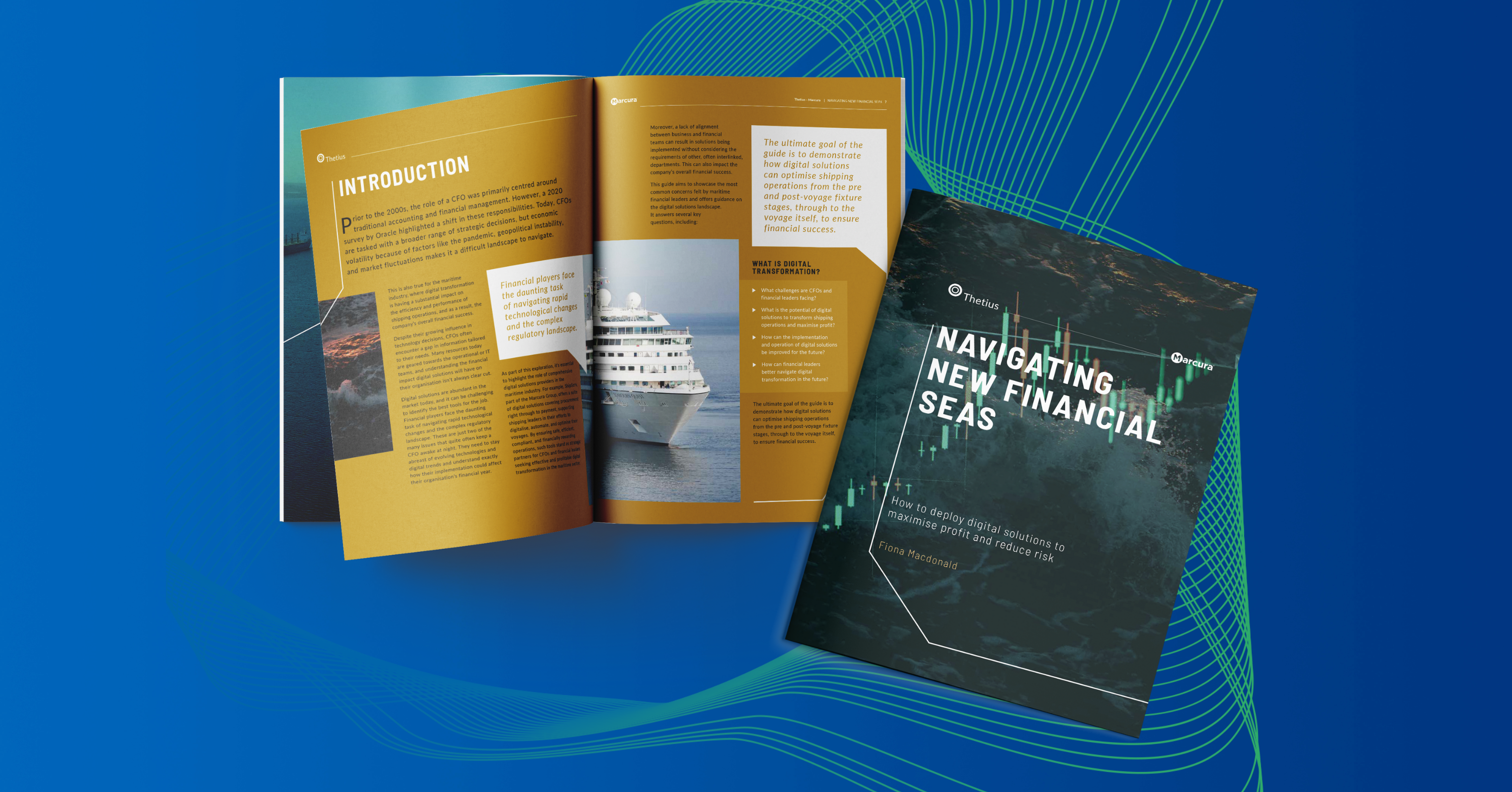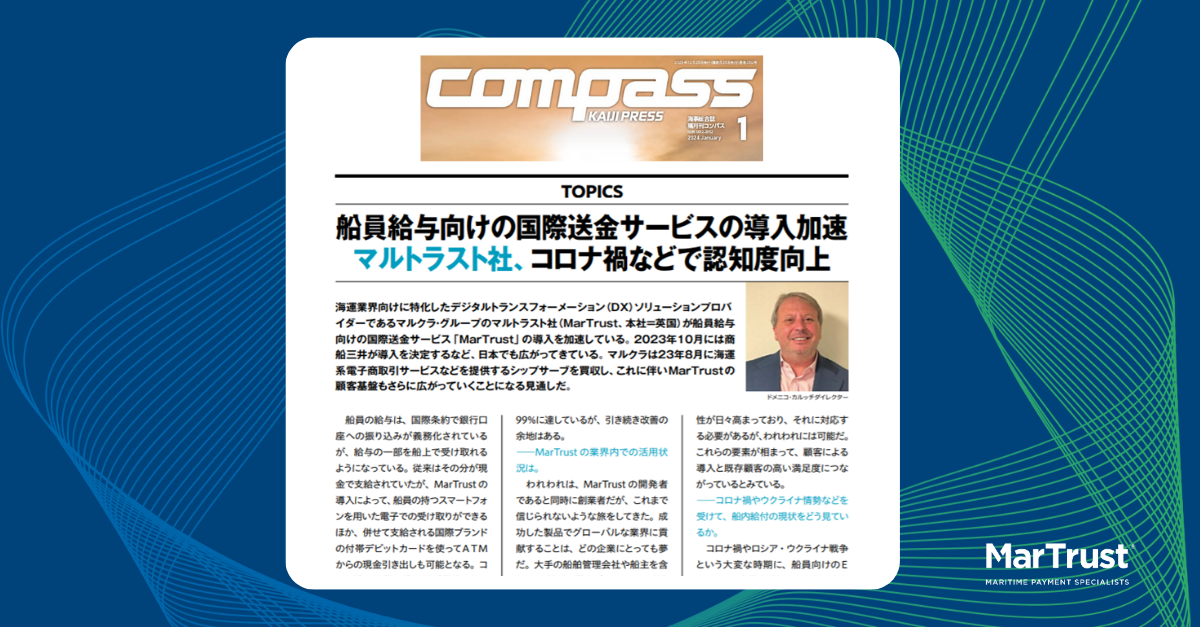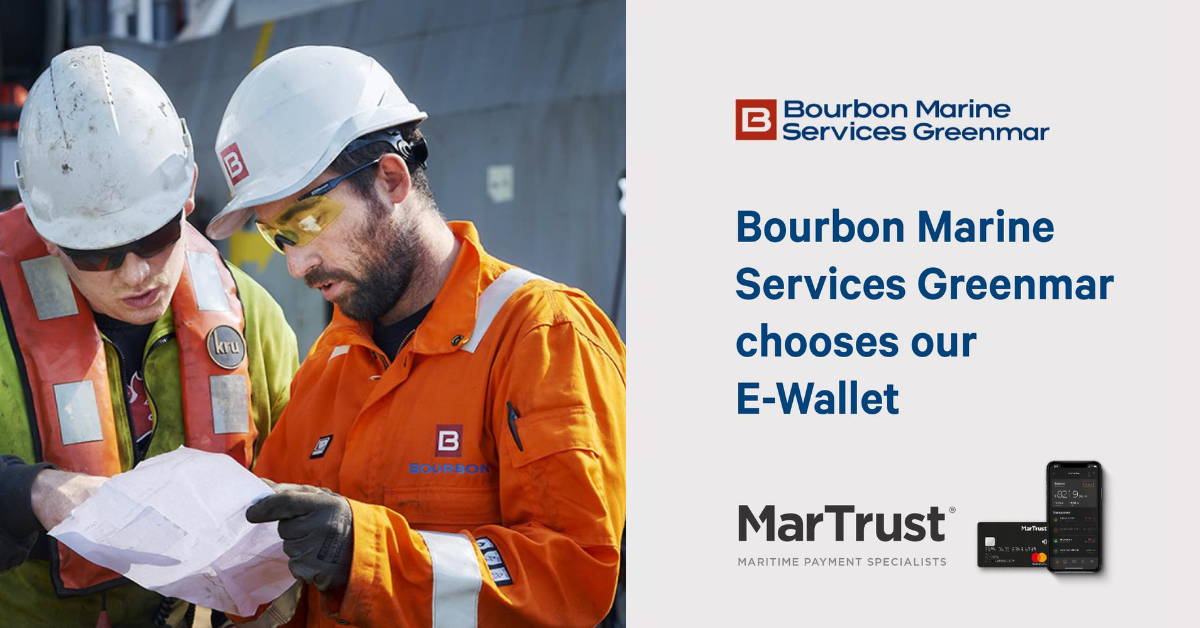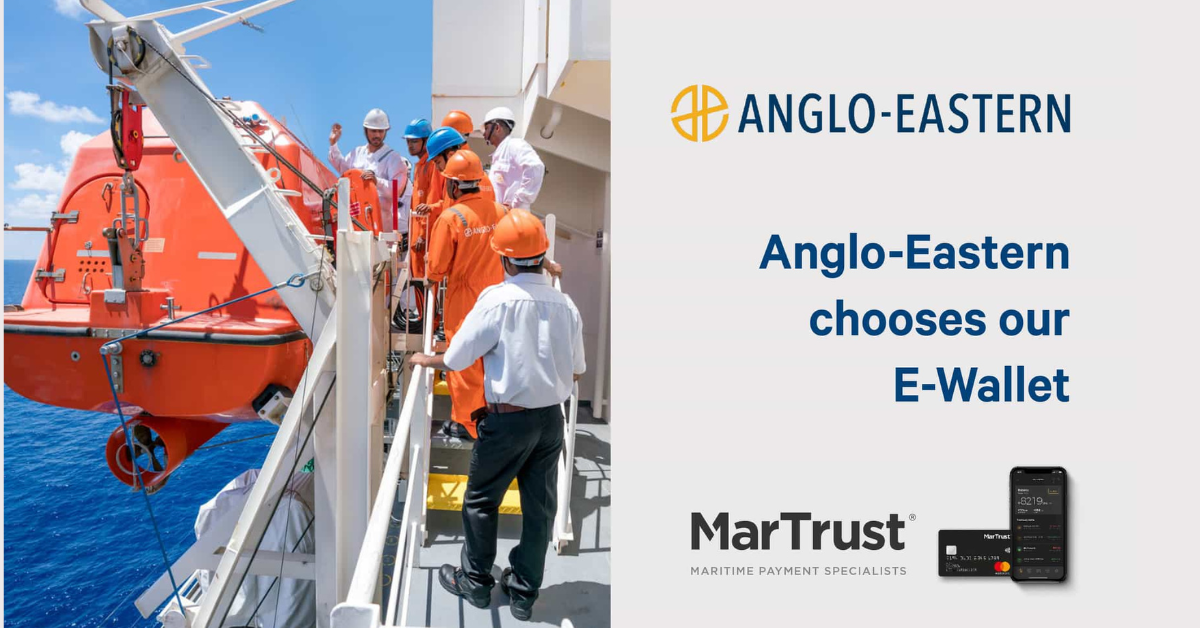With over 2 million seafarers manning the global fleet, timely payments of salaries within the context of an ever-changing geopolitical and sanctions landscape is a challenge. Jonas Helfer, Key Account Manager, Northern Europe, at MarTrust explains how specialist payment services can support ship owners, managers and manning agencies to overcome these hurdles.
As a global industry, we have a diverse maritime workforce and businesses are used to navigating more complicated payroll transactions than other industries might, with regular cross-border and cross-currency payments.
However, with increased geopolitical tensions, most recently the escalation of the Ukraine-Russia war and conflict in the Middle East, ensuring reliable payments to crews has become harder.
Sanctions can change almost daily, leading to more compliance checks, slower transaction times, and ultimately higher costs for shipping companies. Digital payroll and e-wallet solutions are becoming the answer for many maritime businesses.
Companies are seeking crew payment services that can stay on top of sanction changes to ensure they are being compliant, the crew can be paid on time and the process remains streamlined and cost-effective.
When Russia invaded Ukraine and sanctions began to roll in, a big concern of ship owners, managers and manning agencies was whether they could even legally pay their crews – within the global maritime workforce, Russian and Ukraine seafarers account for 14.5%, according to the latest statistics from the International Chamber of Shipping.
Next was realising that traditional banks were then taking longer to make crew payments that are considered higher risk, and accrue more costs for the additional checks being made.
A really important consideration is also how delays in payments can impact crew morale and well-being. Timely salary payments as well as access to their funds will ensure peace of mind for seafarers who have personal commitments and obligations to their families.
In the long-term, this will ensure seafarers’ mental well-being and reduce frustrations, which in turn benefits their employers and reduces overall safety risks onboard if crews are happier and more focused on tasks at hand.
Reliable and predictable payments to staff will also support the company’s reputation as a good employer and will enhance seafarer retention in the organisation and benefit future recruitment.
Crews consistently paid late will vote with their feet and find other employment – something companies cannot afford in an industry facing skills shortages. As the 2021 BIMCO and ICS Seafarer Workforce Report starkly predicts, shipping must take investment in retaining skilled workers seriously – they predicted a serious shortfall of certified officers by 2026. In a smaller pool of talent, companies need to be as attractive to seafarers as possible – they are the ones choosing which employer will benefit from their talents.
Changing with the times
Many shipping companies will still pay crews using ‘traditional’ methods via banks they have spent decades building trust and business relationships with. It may take time to realise there are better ways of doing things utilising modern, specialist payment providers that are far quicker and cost-effective.
For many, it took dealing with sanctions and compliance complications to speed up this realisation, and they are now seeing the overall benefits.
Specialist payment providers help stay on top of complex sanctions compliance at pace – avoiding companies falling foul of global regulations, thanks to an extensive and continually updated database of thousands of data points.
This also frees staff up from a burdensome administrative tasks such as having to locate stuck payments in the banking network.
However, specialist payment solutions also offer significant reductions in associated banking costs, are quicker to process, and can keep on top of payments to ensure payroll accuracy – again removing admin from busy teams. Low-cost transfers and access to leading FX rates make payment processes much more cost-effective, especially at scale, and seafarers can access their money instantly at any given time through an digital wallet or crew account.
These types of services can mean one file, one settlement, with two-way integration into existing payroll software. They can also account for crew requests for a fixed percentage of salary to be paid directly home to their families.
For shipping companies looking to make a change, look for firms that have a long track record in the maritime and payment industry and are working with reputable banking partners.
Crew considerations
A happy crew are a safer crew and is more likely to stay working for your company, retaining skills and lowering recruitment costs. By using technology such as digital wallets, you will be able to ensure crew are paid on time, have more control and can access low-cost transfers.
Paired with a crew debit card for easy payments, digital wallets provide crews with another flexible option to access and spend their funds, and can reduce cash on board by 80%. With such payment methods, seafarers have the complete freedom to use their salary as they deem fit. They can send funds to their families, and make quick payments and transfers in the required currency with good FX rates.
Using specialist service providers of digital wallets and payroll services enables shipping companies to provide greater flexibility to seafarers; important when faced with the restrictions of dealing with financial transactions at sea, and away from home and easy access to banks onshore.
Additionally, it also reduces the administrative burden for internal teams who can then focus on more value-added tasks for the organisation because they no longer need to locate stuck payments or update seafarer bank details, which can be done by the seafarer themselves, with checks run automatically by the system.
An industry in flux
As today’s modern business operating environment shows no signs of geopolitical risks and sanctions becoming less complicated any time soon, it makes clear sense to rethink and modernise crew payment services.
In an industry that is constantly in flux, it is essential to utilise expertise and specialist payment solutions to keep the wheels of crew payments turning, while also ensuring sanctions and regulatory compliance.
About the author
 Jonas Helfer
Jonas Helfer
Key Account Manager, Northern Europe
Jonas started his shipping career in 2013 with a dual vocational program at Maersk Line, advancing through multiple roles at Maersk and other leading liner carriers. He obtained a BSc in Shipping, Trade, and Transport from London Metropolitan University before taking a project management opportunity at Bernhard Schulte Cruise Services, where he collaborated across various departments including management, finance, and crewing. Jonas joined the MarTrust team in 2020, bringing his industry expertise where he’s been a key contributor ever since.








